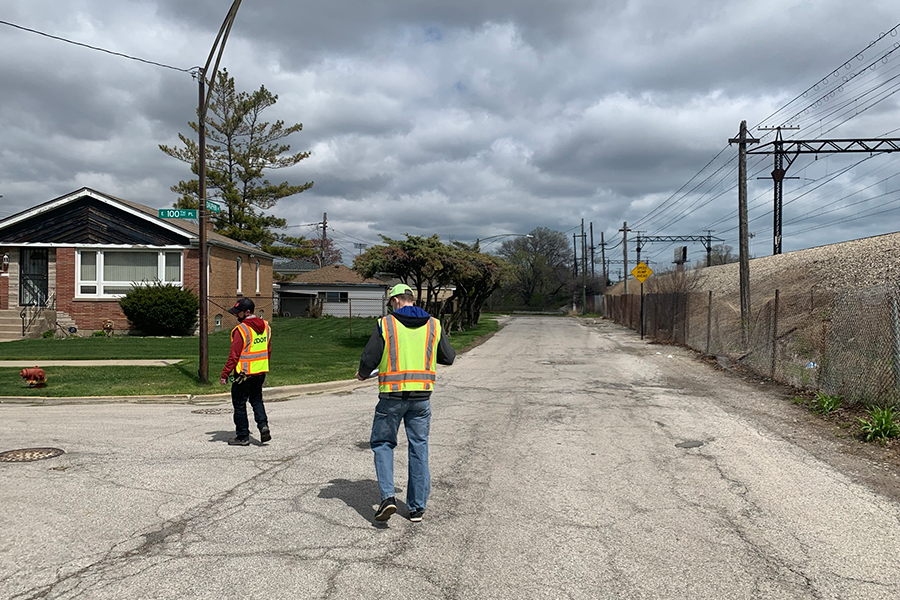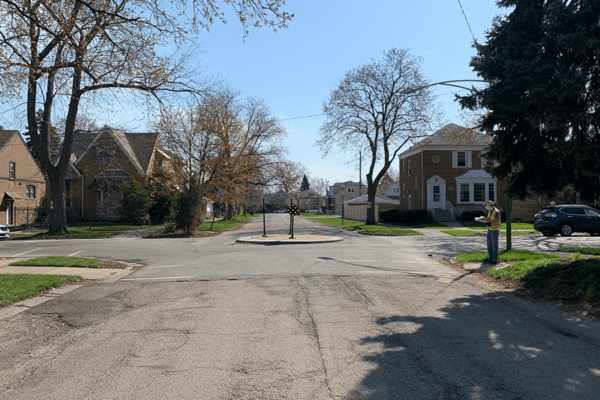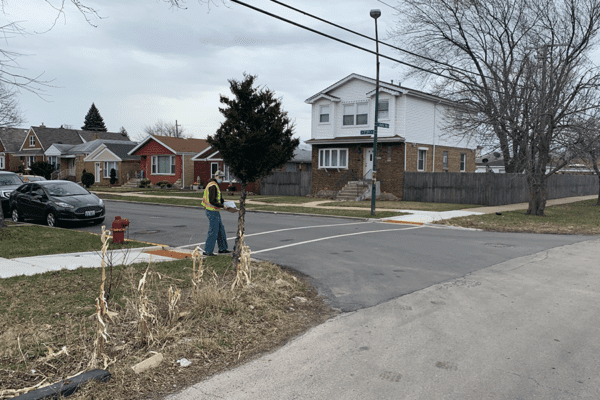
Civiltech, together with our C*NECT partners, has been providing design services to the City of Chicago as part of the Chicago Works program to repair streets originally built through the Works Progress Administration (WPA). The WPA reconstruction program, which had been on hold for a decade, has been recently restarted with new funds made available from a large capital infrastructure bond.
The WPA was first introduced by the federal government as part of the New Deal in 1935 to employ millions of people throughout the United States during the Great Depression. The majority of the projects funded through the WPA were highways and streets, including miles of residential streets in the City of Chicago. Most of these streets were not constructed to today’s standards, lacking curb and gutter, adequate sewer structures for drainage, and appropriate lighting, and many are still unimproved since their initial installation in the 1930’s.

The Chicago Department of Transportation (CDOT) maintains a master list of streets which includes hundreds of blocks. The streets are ranked based on a number of metrics that take in to consideration infrastructure, equity, and livability. These metrics include pavement condition, existence and condition of sidewalk facilities, pedestrian connectivity, 311 activity, economic and mobility equity, and population density. The design team then prioritizes projects based on these rankings, along with working to balance projects geographically to create efficiencies and equitably within different regions of the City.
Design work on these projects includes roadway reconstruction, curb and gutter installation, new sidewalk installation, ADA compliant pedestrian facility design, new lighting, and drainage design. The roadway improvements can include driveways and alley aprons as well. Some projects also involve bicycle facilities. For example, on one recent project, an existing bike trail incorporated a stretch of WPA road connecting Chicago Park District facilities and Cook County Forest Preserve facilities.

While most WPA streets lack curb and gutter, most streets do have existing storm sewer facilities. The storm water management design work can include adding catch basins or upsizing sewer mains, and with this work, the designers must coordinate with the Chicago Department of Water Management to ensure that the existing network is adequate. Right of way issues have also been a consideration on some projects that run alongside railway embankments.
There is general public awareness of the WPA streets projects from stakeholders impacted by the improvements with the local alderman usually leading the communication efforts and being the primary stakeholder contact. The C*NECT team has helped prepare public outreach presentations and materials on many WPA projects for use by the aldermen as well as project notification letters that can be distributed to impacted residents.
It is the intent of this extensive program that dozens of blocks will be reconstructed annually. The C*NECT design team is wrapping up work on 37 blocks of roadway improvements targeted to be constructed in 2022. The next 30 blocks in the queue were released as a RFP, and the C*NECT team will provide Program Management on those projects on behalf of CDOT.
